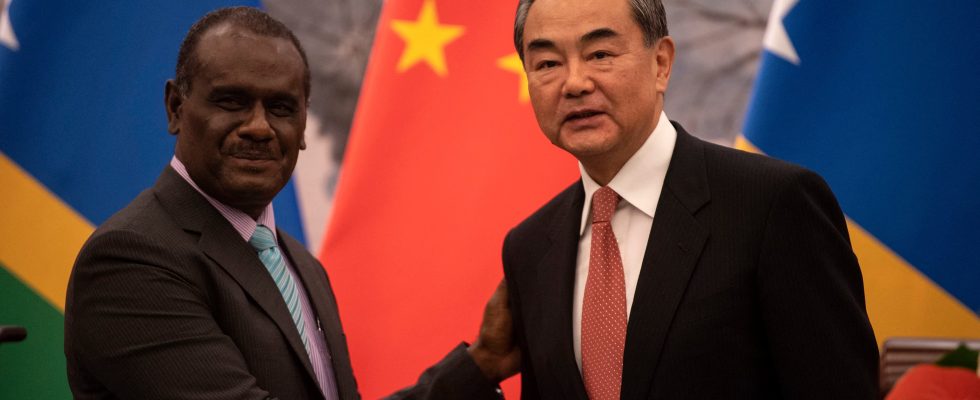This election was closely observed for its expected impact on the security situation in the region. Pro-Chinese Foreign Minister Jeremiah Manele was elected Prime Minister of the Solomon Islands this Thursday, May 2, winning over an adversary who wanted to reduce Beijing’s influence in this small South Pacific country.
Jeremiah Manele, a career diplomat, won 31 out of 50 votes in a secret ballot, Governor General David Vunagi announced.
His rival, opposition leader Matthew Wale, unfavorable to Beijing, obtained 18 votes in his favor. “The people have spoken,” declared Jeremiah Manele, welcoming the fact that the vote took place without violence, in a country where elections are often turbulent. “We showed the world today that we are better than that,” he stressed.
Already post-election violence
In 2000, Prime Minister Bart Ulufa’alu was forced to resign after being kidnapped by disgruntled gunmen. And in 2006, international peacekeeping forces were deployed to quell post-election violence. Observers expect Jeremiah Manele to continue the archipelago’s friendly policy towards China.
The Solomon Islands entered China’s orbit in 2019 under the leadership of outgoing Prime Minister Manasseh Sogavare – who did not run – by turning away from Taiwan to establish diplomatic relations with Beijing.
Jeremiah Manele was serving as Minister of Foreign Affairs on that date and as such had traveled to Beijing to formalize the opening of these links between the two countries.
Security pact
Manasseh Sogavare’s rallying in Beijing had partly fueled a wave of anti-government riots which ravaged the Chinese district of the capital Honiara in 2019. Manasseh Sogavare then signed a secret security pact with Beijing in 2022, and allowed the rapid expansion of Chinese interests in the archipelago, a member of the Commonwealth.
Although details of the deal remain unclear, Washington and Canberra fear it could lay the foundation stone for a permanent Chinese military base in the South Pacific, which could be a game-changer for regional security.
Jeremiah Manele’s rival, Matthew Wale, human rights activist, condemned this security pact with China. “The question arises as to whether Mr Sogavare will seek to exert influence behind the scenes,” Graeme Smith, a Pacific specialist at the Australian National University, told AFP. “I don’t think there will be a significant change in policy,” he said.
“A government of national unity”
The Prime Minister-elect promised “a government of national unity” which will focus on improving the economy and “progress […] towards recovery” after the Covid-19 pandemic. Bills around value added tax (VAT) or the establishment of a special economic zone are among the announced priorities of the new government.
China has financed several major projects, including a 10,000-seat athletics stadium and a medical center still under construction. But the country of some 720,000 inhabitants spread across hundreds of volcanic islands and atolls has one of the lowest human development indexes in the world according to the United Nations.
On the eve of the elections, which took place on April 17, Daniel Suidani, a leading opposition figure and former provincial prime minister, described China’s actions as “alarming”. “Over the past five years, China has been involved in many cases. It’s really alarming at the moment,” he told AFP.
In the archipelago, voters do not directly choose their Prime Minister. They elect representatives who negotiate behind closed doors to form a coalition and choose a leader, a process that can last weeks.
